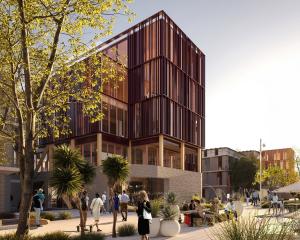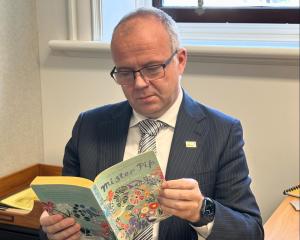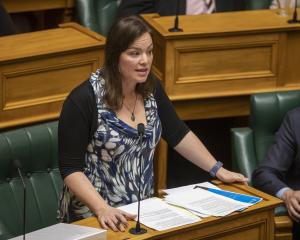As a general practitioner in Dunedin since 1984 and also the professor of general practice I found comments attributed to David Clark (ODT, 5.7.14) unhelpful and misinformed on the project called ''GP Letter Fast Track Plans''.
In that article, Dr Clark stated ''it didn't used to be the case you had to get your chequebook out to get into hospital''.
This comment was so outrageous it could only be politically motivated and related to the coming elections.
So let me set the record straight.
First, the Southern District Health Board in my view does a damn good job, as recognised by all general practitioners and patients, particularly those who write letters to the editor thanking hospital staff for their care.
However, resources (be they staff, facilities or yes, even money) do struggle to cope with the increasing burden and complexity associated with ongoing healthcare as we live longer with more complex chronic conditions.
Let me give you some examples.
I qualified in the 1980s and in that era if a patient got to live to 70 they had done extremely well.
Sudden death from heart disease was common.
As a medical registrar in the early 1980s, you saw that patients over 60 and in renal failure were most unlikely placed on dialysis.
If you were over 65 with a heart issue you were most unlikely to be admitted to coronary care.
That is the way the system worked then.
Rationing occurred to ensure the right people got access to the right care based on the information we had available.
Now people are living well into their 80s and older but bits of them are breaking down.
We are coping with a generation of people living longer with age-related conditions but expectations of a full and fruitful extended life.
We now have CT machines and I am sure many in Otago remember when the first CT machine was bought through a public campaign to raise funds.
Now many rural hospitals have CT machines and we have moved to MRI scanners as well.
We replace hips and knees, provide pacemakers and operate on conditions that were just a dream a few years ago, and most importantly we provide care and comfort to those entering the final stages of life.
All these changes have occurred during my working professional life and continue to develop.
The health sector at times struggles to keep up with demand.
The GP fast-track letter is nothing new.
It is what I have been doing all of my practising life.
What, however, we are trying to get people to understand is that seeing their general practice team is often much more beneficial than direct presentation to hospital.
We do, in fact, triage patients.
When I see a patient, a process occurs.
First and foremost, I ask myself: Is this a time-limited illness?
By that I mean that, given time, will the patient come right by themselves without any specific intervention, such as a prescription or investigation.
Or do they need an intervention and if so, what?
I can order blood tests or X-rays; I might write a prescription; I might refer for another opinion to an outpatients department at the hospital or if the patient is severely unwell then I will refer for immediate admission; I will also do minor surgery; repair wounds; remove skin cancers.
All these things occur in all general practices and are performed extremely well here in the South.
What we see now is increasing numbers of patients going directly to the hospital emergency departments.
These patients are missing out on this vital (general practice) step.
Why is this a problem?
The issue is it is difficult or even impossible for us as individuals to easily interpret our body's signals of illness.
It is obvious if you have fallen and fractured your arm or have a significant laceration and there is no question those patients should be seen primarily at ED.
However, many other conditions are more than adequately managed in the general practice.
So what is driving self-referral?
In the United Kingdom (a fully funded, free GP service) the same increasing number of patients are self-referring to ED.
We are also seeing this in the under-6s (where care is free) here.
So cost, while it may be a driver, is not the sole reason.
Patients can perceive ED as where they need to go.
If, for example, someone has a laceration they think may require stitching they may often go directly to ED, forgetting all general practices repair lacerations.
Or they may self-refer due to difficulty getting to see their practice the day they feel unwell.
This is an issue general practice is aware of and continuing to address.
So let's not have misguided, politically motivated comments which have the potential to undermine people's faith in what is a damn good health system, as recognised internationally.
What we need is acknowledgement that we do have a fine health system and we need to support those trying to ensure it continues to meet our needs as we age and are struggling to cope with the costs of technical advances.
The ability of general practice to assess and determine whether a patient requires hospital care is a critical foundation of our whole health system.
General practice can determine what care is best, and if it is hospital care can facilitate the process and by doing so reduce inappropriate use, waste and, most importantly, ensure the patient gets timely care.












